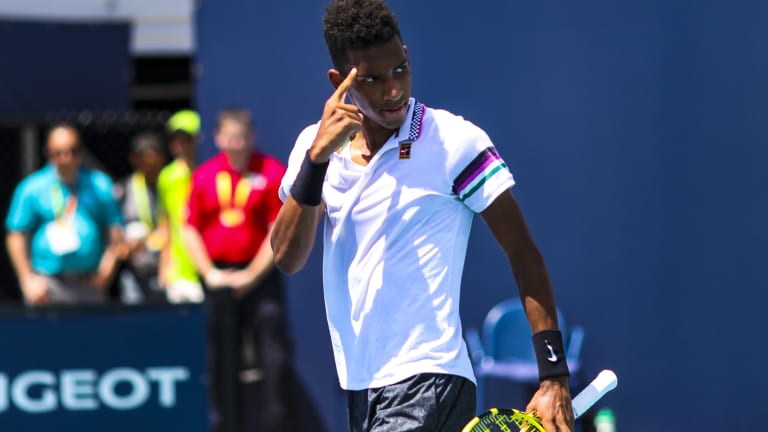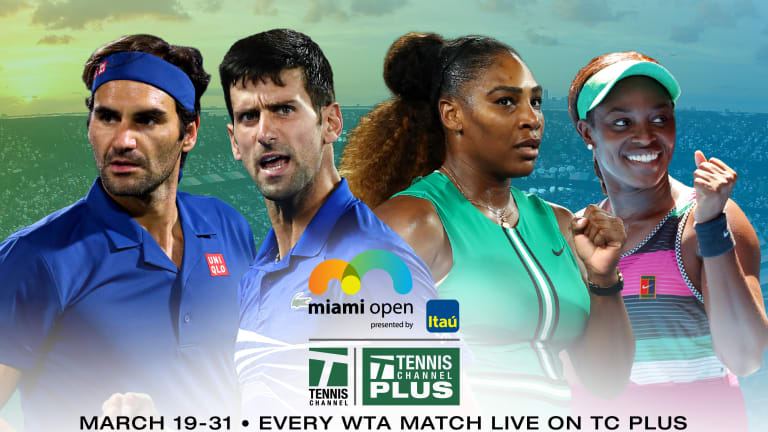Miami, USA
Auger-Aliassime reaches his first Masters 1000 quarterfinal in Miami
By Mar 26, 2019Miami, USA
Jannik Sinner tops Grigor Dimitrov for Miami Open title
By Mar 31, 2024Miami, USA
Danielle Collins won an emotional title, while Jannik Sinner won a logical one, at the Miami Open
By Mar 31, 2024Miami, USA
Danielle Collins wins Miami Open on her final try, topping Elena Rybakina in straight sets
By Mar 30, 2024Miami, USA
Danielle Collins defeats Elena Rybakina for Miami Open title, the biggest title of her career
By Mar 30, 2024Miami, USA
What will be stronger in Miami: Jannik Sinner's rise, or Grigor Dimitrov's renaissance?
By Mar 30, 2024Miami, USA
Jannik Sinner, Grigor Dimitrov advance to Miami Open final
By Mar 30, 2024Miami, USA
Who Will Win: Jannik Sinner or Grigor Dimitrov, 2024 Miami Open men's final
By Mar 30, 2024Miami, USA
Who Will Win: Danielle Collins or Elena Rybakina, 2024 Miami Open women's final
By Mar 29, 2024Miami, USA
2024 Miami Open women's final preview: Elena Rybakina vs. Danielle Collins is always 'neck and neck'
By Mar 29, 2024Miami, USA
Auger-Aliassime reaches his first Masters 1000 quarterfinal in Miami
The Canadian was forced to qualify for the main draw in South Beach, showing the value in not taking short cuts.
Published Mar 26, 2019
Advertising

Auger-Aliassime reaches his first Masters 1000 quarterfinal in Miami
© ANITA T AGUILAR
Advertising

Auger-Aliassime reaches his first Masters 1000 quarterfinal in Miami